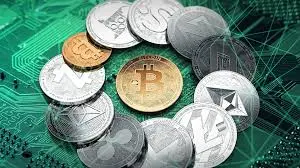对话Alameda联席CEO Sam Trabucco:如何制定交易策略?
原文标题:《Q&A with Sam Trabucco》
编译:不二,链捕手
毕业于麻省理工学院、拥有数学和计算机科学学位的Sam Trabucco,现在是一名量化加密货币交易员,也是 Alameda Research 的联席首席执行官。在加入Alameda之前,他曾在 Susquehanna International Group (SIG) 担任量化交易员,负责债券ETF交易和体育博彩服务。
问:你会如何描述你的投资策略?如何平衡定量科学化和其它的投入?
当我在活跃在交易上时,我会尽量关注一切。我们的自动交易机器人在所有大型平台上进行交易,我会一直在观察他们在做什么。如果发现交易异常,我会进行调查。如果处理得当,就有机会获得最大化收益。有时它会揭示出一个值得解决的错误参数或系统问题。我们还有内部工具来监控各种产品的溢价,比如最近是否有代币波动很大,交易量或未平仓合约或清算出现大幅上涨。这些情况我都会密切关注。我也会监控一些社交媒体账号,比如每当 Elon Musk 发推文时,我们就会立马收到通知。
我们有一个名为 Pointer 的内部系统,当我们需要改变量化模型中的某些因素,包括头寸、利率参数、衰减参数等等, Pointer 可以使操作更加容易。
尽管我们的交易几乎都是自动化的,但我们每天要进行数百次这样的参数更改。通过使用Pointer系统,我们可以控制数千个操作按钮,还可以使用电子表格来控制例如模型类的一些更复杂的东西。
问:例如一些交易员有缜密的特性和专业习惯。你有每天的交易日程吗?
我其实并不是一个特别自觉的人。每日醒来后,我首先会在slack上查看待办事项的优先级列表,然后在依据市场是否相对繁忙的情况下处理这些事或对交易进行积极监查。
此外,我也会主动关注其他一些有趣的事情,这有助于了解行业的一些背景。如果市场风格发生重大变革,我可以及时决定是否需要继续执行操作。我不会墨守成规。
问:随着市场风险的增加,你的交易策略会发展哪些改变?
随着投资规模的增长(以及加密交易量的增长),我们必须考虑比以往更多的风险。例如,我们愿意成为某个主要合约未平仓合约的多少部分?鉴于确定交易对手风险的数据非常少,我们可以证明在每个平台上保留多少资本是合理的?我们自己创建了一个框架,根据这个不太完美的框架对风险进行评估。随着投资规模的增加,和不断累积的实践经验,这个框架在不断完善过程中。
问:你的优势是什么?
我认为我是思维相当敏锐的人,当出现问题或者市场出现快速变化时,我能够迅速做出决定并执行计划,而且通常做得非常好。这一点在加密货币交易中非常重要。因为量化加密市场变化非常快,能够在短短几秒钟的时间内对盈亏出现巨大影响。某种程度上,我对一些巨额的交易数字已经麻木,所以我不会以结果为导向。这种心态使我能够对大额投资做出更有利的投资决策。
此外,我的另一个相对优势在于对市场运作方面的直觉。这难以言表,但在这个行业待得久了就会让我更熟悉它的游戏规则,让我比其他人能够更加了解如何解读事件背后的一些信息,会对市场产生一些什么样的影响。
问:您认为加密市场与传统市场有何不同?
最大的差别在于波动性上。与传统投资相比,加密市场具有强烈的波动性,尤其是债券 ETF的交易。这是由资产类别、交易结构、24/7交易时间等一系列因素引起的。
缺乏集中化的运作机制也是造成上述现象的一个重要原因。如果没有任何人强制要求两个交易所的价格必须相同,投资者完全可以针对相同的产品进行套利,期货价差也可以持续存在。当然,资本也是有代价的。加密市场的数据质量和信息透明度低于传统市场,但是由于没有人对其进行监管,交易所没有改进的动力。
问:你如何监控市场消息和情绪?
我们有几种监控市场消息的方式。我们会时常关注 Twitter 和其他社交媒体,以确保没有发生什么大事。我们还有一个名为#urgent-trade-news的闲置频道,鼓励公司中的任何人在看到任何他们认为可能对市场产生影响的内容时迅速发布,这是一个很好的补充,可以让我们随时了解市场的重要消息和有影响力的事件。
在监控情绪方面,我们的一大优势往往是能够确定市场似乎高估了新闻影响力的点,这些点是我们经常会做大的、并进行长期的赌注的时机,因为我们觉得我们可以从中预测市场的走向,因为市场会在变化中进行纠正。例如,在2021年7月中旬,当BTC在一些新闻之后跌至30K美元的水平时,我们就这样做了。这些新闻对加密货币来说并不完全是积极的,但从未真正像市场对待它的那样消极。
问:你认为自己存在哪些弱点或偏见?
我很任性,总体上而言,可能过于自信,但我认为这对我很有帮助。因为过度自信往往会让你尝试你认为“应该”做的更多的事情,有时这些事情会很顺利,这种情况在我这里经常发生。当然,这也会导致出现一些问题,有时会我会高估自己的能力,并可能为此付出高昂的代价。我有很多明显的弱点,比如我不是一个优秀的编码人员,复杂的代码看得我眼花缭乱。庆幸的是,Alameda的其他同事弥补了这一点。
我也有一些纠偏的倾向。例如,我在最近一些交易上因为出手太慢而错过了机会,那么接下来一段时间我可能会过于强烈的偏向于进行非常快速的交易,但这也会付出一定的代价。虽然我已经非常擅长规避一些明显的投资偏见,将影响减少到最低程度,但确实还存在一些我不确定的投资偏见。
问:你觉得这个市场有哪些不足之处?
坦诚说,我认为加密货币行业是世界上最有趣的交易市场,它是一个独特的而且不断发展的市场,我试图在其中保持领先地位。我觉得其中有一些机制令人烦恼,比如24/7交易,让你没有休息的时间,如果能够改一下那就太好了。但这也是一个很好的投资机会,因为这一切所以才有趣。
问:你对加密行业和公司未来的发展有什么期望?
我希望我们能够继续保持敏捷度和领先地位。我们之所以取得如此大的成功,某种程度上是因为我们始终处于市场前沿,我们能够很快发现最重要的机会是什么,并且能够迅速采取行动,这背后是一系列竞争对手没有做过的艰苦而烦人的工作。比如我们看到收益耕作具有非常大的投资价值,于是我们就在几天内建立了世界上最大的收益耕作运作系统。我们看到一些长期投资项目被低估了,于是我们就建立了一个超级活跃的风险投资部门。
加密市场本身发展迅速,我们需要经常对自动化策略进行规模更改以快速适应这种变化。虽然加密技术在不断发展,但这仍然会是成功的秘诀,我们需要继续这样做以保持成功。通过 Solana 等项目,我希望加密货币能够充分发挥其作为未来货币的潜力。
问:最后也是相当重要的一个问题,你现在所坚定的市场信念是什么?
我不会经常说自己具有强烈的长期市场信念。我确实相当强烈地认为,市场将继续以某种方式发展表现。比如,现在市场对某些倾向性的消息非常敏感,有时甚至过于敏感,导致在影响出现后很快发生一些逆转。不过,随着对市场自我调节,会越来越适应这种节奏。
从最近的监管趋势看,监管机构正在越来越频繁地打击加密交易所提供的一些更“不安全”的功能,越来越多的交易所也正在采取措施降低用户可以获得的最大杠杆。它们带来的影响就是减少清算和降低短期波动。未来,大幅的剧烈的波动会变得越来越少(尽管并非不存在),我预计这会是未来加密市场的发展趋势。









